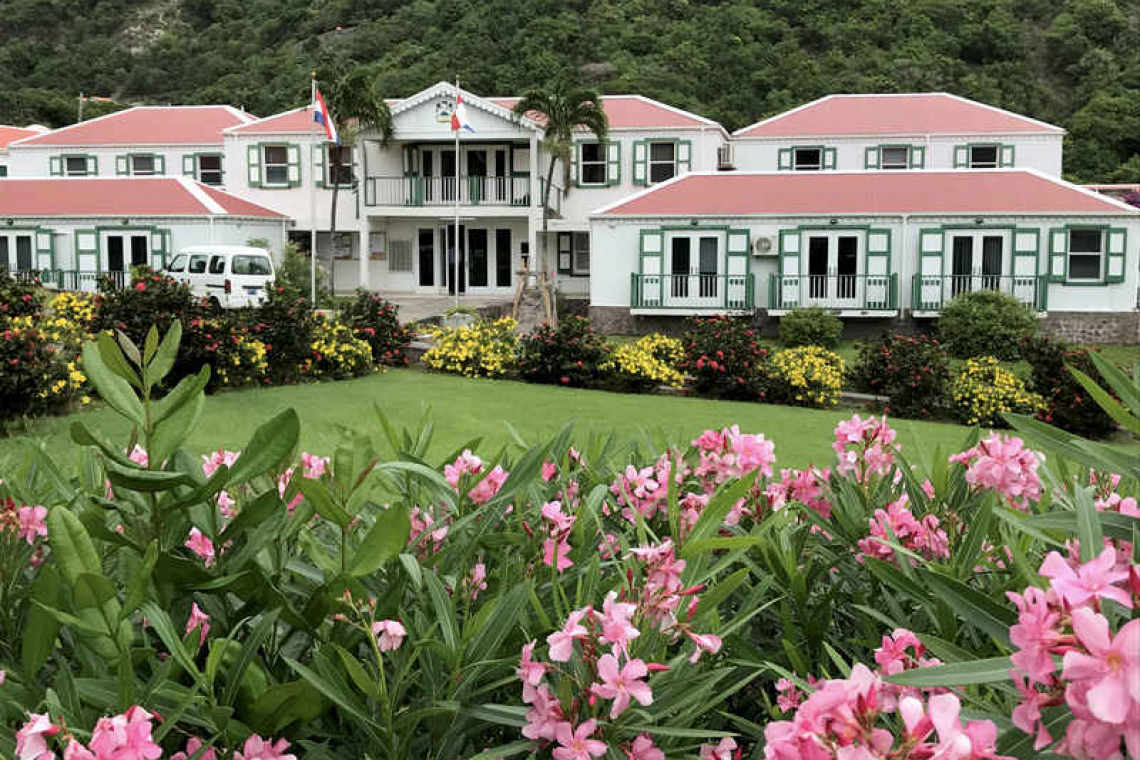Government Building
SABA--The public entity Saba’s Island Ordinance to ban single-use plastic will go into effect on January 1, 2021, with a prohibition on the distribution and handing out of plastic carrier bags.
From that date, Sabans will have to bring their own bags to take with them the items they have bought. The ordinance prohibits businesses from giving out plastic bags for free. This is done to encourage people to use reusable bags, but also to help businessowners save cost.
The ban includes bags made from bioplastic, which is a type of plastic made from a sustainable source, but which was chemically processed to have characteristics similar to regular plastic. The impact on the environment is therefore almost the same.
The single-use plastic ban is being implemented in phases to allow businesses some time to introduce alternatives. Per May 1, 2021, the ban will apply to other single-use plastic products, such as cups, plates, cutlery, straws, stirrers, cotton swabs with plastic rods, fresh produce bags and confetti. Styrofoam food containers are the last product to be banned, on October 1, 2021.
Next month, a “starter kit” with reusable items as alternatives to single-use plastic products will be distributed to each household. The kit will contain a shopping bag provided by Body, Mind & Spirit (BMS) and other reusable items such as a fresh produce bag, an insulated drinking bottle and a bamboo straw.
An exemption to the single-use plastic ban will be in place for certain medical-purpose products or in other contexts where hygiene cannot be sufficiently ensured otherwise. Teams that also carry out the inspections at restaurants and supermarkets will see to the enforcement of the ban.
The Island Council unanimously approved the Island Ordinance on October 22. Commissioner Bruce Zagers noted during that Island Council meeting that Saba was the first island in the Caribbean Netherlands to implement an ordinance to ban the vast majority of single-use plastic products. “This is a positive development for Saba and will show long-term gains for our nature and our environment as a whole,” he said.
The Island Council initiated the process to create this ordinance in 2018 with a unanimously-adopted motion of Council Member Vito Charles. In 2019, a letter of intent was signed with the Ministry of Infrastructure and Water Management to work together on the implementation of this ban which is largely based on European Union (EU) regulations.







